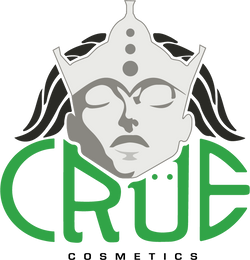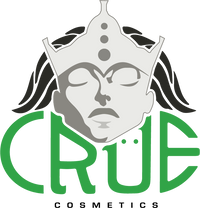
" Whatever the mind can conceive and believe, it can achieve. " - Buddha
But why is this true?
According to science, there is a close relationship between your thinking and your physical health. Your mindset and attitude towards life can significantly affect your skin, hair, and overall well-being.
A negative state of mind can be a precursor to several diseases and stunt your hair growth!
Of course, cultivating a positive attitude will not only improve your hair growth, but also allow you to live a life full of abundance and joy.
Diet, sleep, and exercise are factors that affect your mental health and can be used to optimize your hair journey.
This article presents some simple tips to relax, reduce stress and promote healthy hair growth from the inside out, with the backing of science.

Avoiding all forms of stress in 2022 is next to impossible. That said, how you deal with stress can have an impact on hair loss. Chronic stress can impede hair growth by prolonging the duration of the resting (telogen) phase and stunting the growth (anagen) phase [1]. Stress can also increase the risk of cardiovascular disease in adults [2]. Stress management is essential and should not be neglected, as it is responsible for various health problems.
Note that not all forms of stress are bad for your health. For example, experimenting with a new activity, preparing for an interview or speaking in public can be scary, but not necessarily harmful [3].
Here is a list of stress management techniques you can practice in the comfort of your home to lower your cortisol levels.
- Meditation
- deep breathing
- Yoga
- Keeping a diary
- Spending time with pets.
- Get counseling or therapy
- Interact with nature
Eating a healthy, balanced diet can help relieve stress and promote healthy hair growth. It's vital for your overall health - and for your hair! A healthy diet can also prevent hair thinning and premature graying [4]. When it comes to the best foods to prevent stress-induced hair loss, focus on nutrient-dense foods and drink 3 liters of water a day. Your hair is like a plant, it needs water to grow, and your cells need it to function properly.
Foods to eat:
- Fruits and vegetables (kale, carrots, sweet potatoes)
- Complex carbohydrates (brown rice, millet, oats).
- Proteins (chicken, eggs, fish)
- Nutrient-dense foods (especially zinc, iron, omega-3, biotin)
Vitamin and mineral deficiencies can contribute to hair loss and scalp conditions like dandruff (seborrheic dermatitis). You should consult your doctor before taking any supplements. According to a 2016 study published in the Journal of Drugs and Dermatology [5], stress-induced hair loss can be caused by specific nutritional deficiencies, including:
- Ferritin
- Vitamin D
- Zinc
- Vitamin B12
Stress and anxiety can significantly disrupt sleep, causing insomnia and other sleep disorders that can further alter the body's hormonal balance [6]. Aim to get 7 to 9 hours of sleep and follow good sleep hygiene practices, such as sleeping in a cool, dark room, blocking out noise, and not leaving electronic devices in the bedroom.
Regular physical exercise can help reduce stress and help you cope with difficult situations. Exercise also increases blood circulation, which is beneficial for hair growth. Establish a consistent routine and include cardiovascular and strength training exercises for best results.






